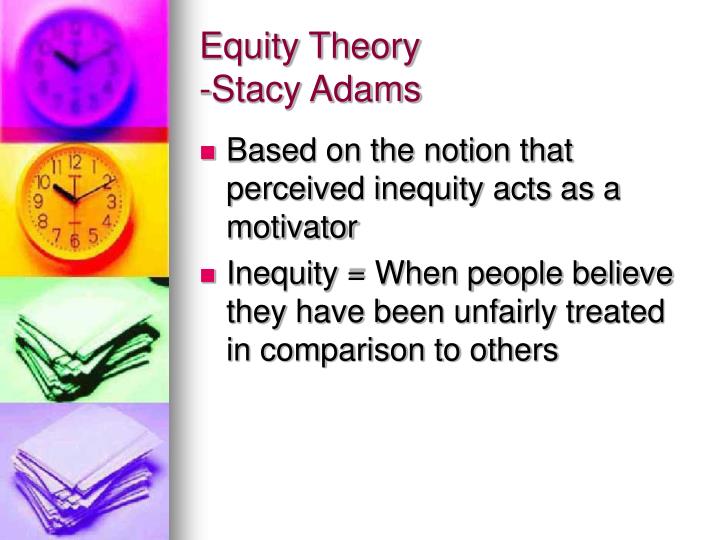
They are typically aligned with something that an organization wants to achieve for example, they may want:Īs a simple example, we can consider a factory worker who contributes to an organizational goal (sales) by helping in the manufacturing process). Inputs are those contributions that help towards a goal. To further understand this, we need to examine what we mean by inputs and outputs.Įmployee Input (Contribution & Motivation) What are the inputs and outputs in Equity theory?

These inputs and outputs aim to describe all aspects of what a person can provide and receive from their work. The model looks to use these as a reference for an employee’s own position in determining fairness.Īnother sophistication within the model is the move away from merely effort and reward.Įquity theory bases its understanding of inputs and outputs, where both can have a myriad of meanings. The fact that the model includes a perception of fairness within its formulae makes this a rather more complex model than by just studying the usual relationship between effort & pay.Īs a result, the model stretches further than many similar models in that it examines not only the self but also incorporates the relationship with other people’s conditions. Input (contribution & motivation) = Output (reward) + Perception of Fairness We can examine this by way of an equation: What are the Components of equity theory?Īdams Equity Theory explores the relationships between three factors What are the common criticisms of Equity Theory?.What are the benefits of Equity Theory?.What Adams Equity Theory means for organizations.Individuals that feel under-compensated.Individuals who perceive they are over compensated.Further considerations in Equity Theory.

.jpg)
Reasonable in relation to their contribution.

Adams Equity Theory examines the principle that for an individual to be motivated they need to sense that the benefits they receive are:


 0 kommentar(er)
0 kommentar(er)
